Lost in translation: China to ban 'Chinglish' to get rid of embarrassing mistakes on public signs
'Racist park' and 'explosive dog' are some funny Chinese to English translations..
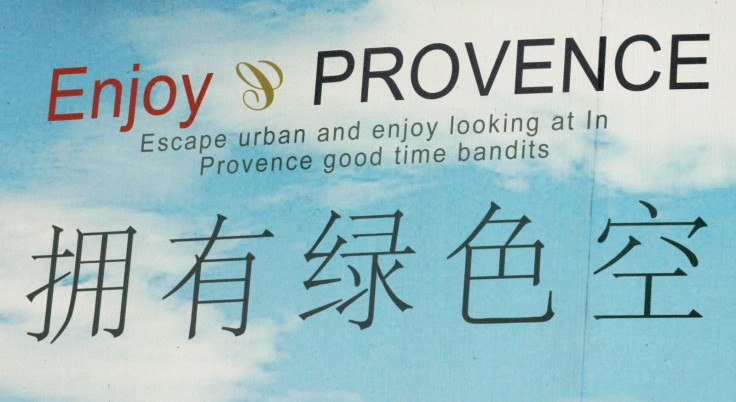
Tired of being laughed at by foreigners for its hilarious but embarrassing English translations, China has announced a crackdown on bad English on public signs once and for all. This week, the communist government issued a national standard for the use of English in all public signboards that is to take effect from 1 December.
The new guidelines are thought to be aimed at improving the quality of English translations in 13 public arenas, including health care, transportation, education, entertainment and financial services.
According to the policy, English translations should prioritise correct grammar. It has also warned against using rare expressions and direct translations of local words, China's People's Daily reported.
The country will also provide standardised translations for roughly 3,500 commonly used phrases for public information, in a bid to rid the country of Chinglish – odd English translations of Chinese words – which has long been a common sight in China.
The national standard, issued jointly by China's Standardization Administration and General Administration of Quality Supervision, Inspection and Quarantine, also bans content that is derogatory or "damages the images of China or other countries". Hurtful or discriminatory words are also banned, the state-owned paper said.
The implementation of the new policy would bring an end to the misnomers that have amused as well as confused foreign tourists for years.
The publication added that poor translations are hampering the development of a multilingual society, besides leading to social issues.
For example, Beijing has for years used the term 'Racist Park' to describe the 'Park of Ethnic Minorities' in the city. The name has offended many.
The effectiveness of following the new standard "will clearly depend on the availability of good translators" while the warning against literal translation "is a wise one", South China Morning Post cited Bernard Spolsky, a linguistics professor at Bar-Ilan University in Israel, as saying.
The usage of such Chinglish words and signs or a muddled foreign-language version of food menus has become an iconic feature of the mainland. There are even several websites dedicated to mock at the use of Chinglish words and phrases.
It is also common to come across the use of semantically related words to create an inadvertent meaning.
For instance, a simple sign for a 'wet floor' caution read 'The slippery are very crafty', while 'explosive dog' was used to describe bomb-sniffing canines.
Here are some infamous signs and phrases:
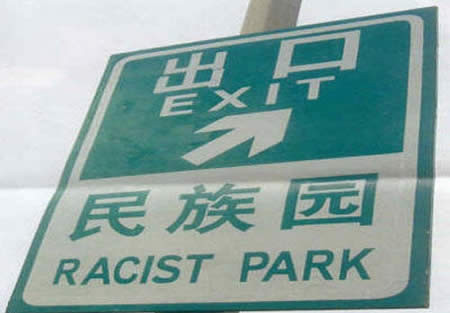

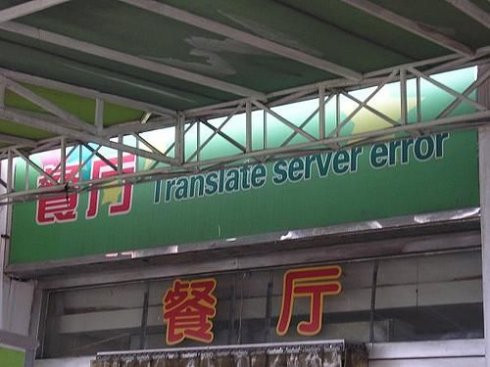
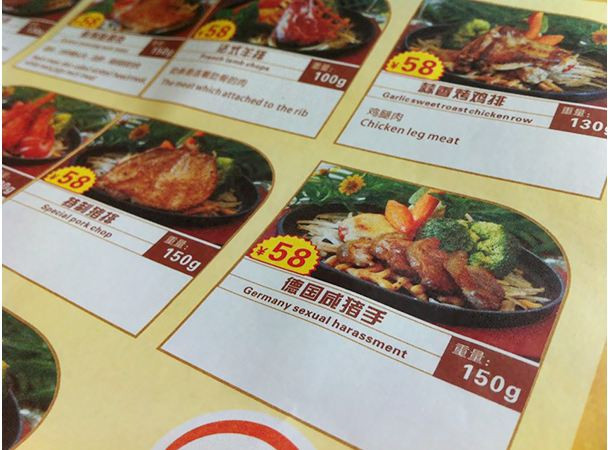
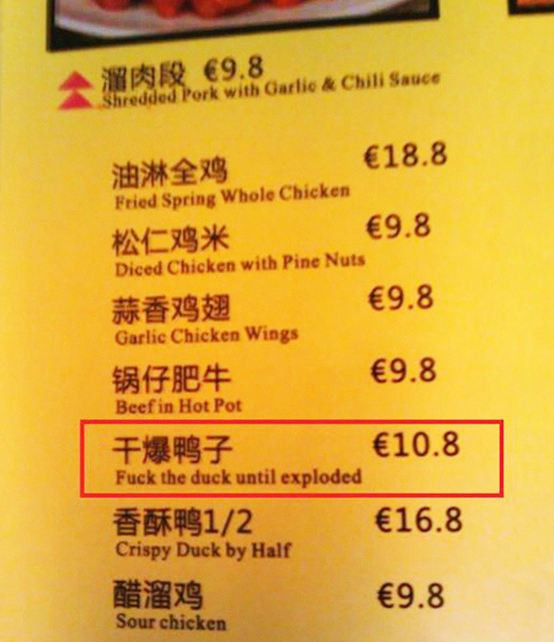
© Copyright IBTimes 2025. All rights reserved.





















